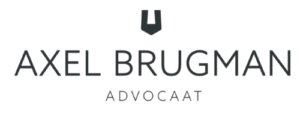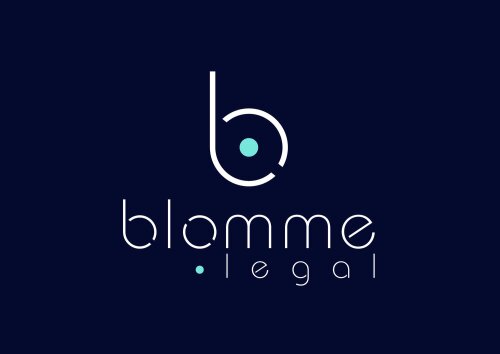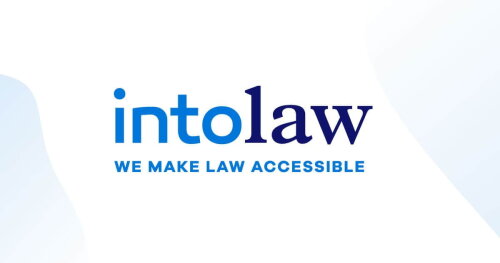Best Conveyancing Lawyers in Ghent
Share your needs with us, get contacted by law firms.
Free. Takes 2 min.
Free Guide to Hiring a Real Estate Lawyer
List of the best lawyers in Ghent, Belgium
About Conveyancing Law in Ghent, Belgium
Conveyancing in Ghent, Belgium, refers to the legal process of transferring property ownership from one person to another. This can include residential, commercial, or land transactions. Conveyancing encompasses several stages, including drafting and reviewing agreements, carrying out due diligence checks, and registering the final deed with public authorities. In Belgium, conveyancing is a regulated procedure, often requiring the involvement of a notary public who oversees the legal and administrative aspects to ensure the transaction is lawful and binding. The process is designed to protect the interests of all parties involved and prevent disputes regarding property rights.
Why You May Need a Lawyer
Seeking a lawyer’s assistance during conveyancing transactions in Ghent can be crucial. Some common situations where legal help is needed include:
- Drafting or reviewing complex purchase agreements
- Clarifying unclear property boundaries or resolving disputes over title
- Managing the transfer of ownership in cases of inheritance, divorce, or bankruptcy
- Identifying hidden defects or encumbrances on the property
- Ensuring compliance with local zoning laws and urban planning regulations
- Coordinating with banks or third parties for mortgages and loans
- Interpreting contracts and ensuring understanding of all clauses and obligations
- Settling issues regarding taxes, registration duties, or transfer fees
Local Laws Overview
Conveyancing in Ghent is governed by both national Belgian law and regional Flemish regulations. Key legal aspects to consider include:
- The mandatory use of a notary for all property sales and registrations
- Buyer and seller responsibilities regarding the condition, boundaries, and legal status of the property
- The requirement to provide an Energy Performance Certificate and soil certificate upon selling
- Specific disclosure obligations, such as revealing the presence of asbestos or other hazardous materials
- Transfer taxes and registration duties imposed by the Flemish government, which must be settled before the deed is registered
- Strict urban planning and zoning laws that may limit how the property is used or altered
Frequently Asked Questions
What is the role of a notary in conveyancing in Ghent?
A notary in Ghent is a legally required public official who oversees the transfer of property, ensuring all legal requirements are met, documents are accurate, and the property registration is completed. The notary acts as an impartial intermediary between the parties.
Can I draft a property purchase contract without a lawyer?
While it is technically possible to draft a preliminary contract without a lawyer, it is highly recommended to have legal advice to avoid pitfalls and ensure all necessary conditions and disclosures are included.
What taxes and fees are associated with conveyancing in Ghent?
The main costs include registration duties, notary fees, and administrative charges. The registration duty rate in Flanders is typically 3 percent for a primary residence but may differ for other properties. Additional costs can arise from cadastral searches or special certificates.
How long does the conveyancing process take?
On average, the entire process from signing the contract to the final act before the notary takes between two and four months, depending on the complexity of the transaction and administrative requirements.
What documents are needed for conveyancing?
Key documents include the deed of sale, cadastral extracts, title documents, planning certificates, soil certificates, and the Energy Performance Certificate. The seller usually provides most documents, while the notary confirms their accuracy.
Is a deposit required when buying property?
A deposit, typically 10 percent of the purchase price, is usually paid upon signing the preliminary purchase agreement. The notary holds this deposit in trust until the sale is finalized.
What happens if defects are discovered after the sale?
If defects are hidden and not disclosed, Belgian law allows buyers to pursue claims against the seller under the guarantee against hidden defects, subject to specific time limits and criteria.
Are foreigners allowed to buy property in Ghent?
Yes, there are no residency or citizenship restrictions on property ownership in Belgium, including Ghent. All buyers must still comply with the standard legal requirements.
How are disputes settled in conveyancing cases?
Disputes are usually resolved through negotiation, mediation, or, if necessary, legal proceedings in local courts. Engaging a lawyer early can help prevent disputes from escalating.
When is the property officially transferred to the new owner?
Ownership is officially transferred at the signing of the notarized deed and its subsequent registration. This is when the buyer acquires legal rights to the property.
Additional Resources
For further guidance or information on conveyancing in Ghent, consider contacting or consulting with the following resources:
- Koninklijke Federatie van het Belgisch Notariaat (KFBN) - The Royal Federation of Belgian Notaries provides detailed explanations and directories of local notaries.
- Vlaamse Overheid (Flemish Government) - The official portal offers information about registration duties, property taxes, and regional planning rules.
- City of Ghent - Urban Development Office - Handles inquiries regarding local urban planning and building permits.
- Bar Association of East Flanders - Can refer you to qualified real estate lawyers specializing in conveyancing law in Ghent.
- Belgian Chambers of Notaries - Offers practical guidance on the role of notaries and standard procedures for property sales.
Next Steps
If you need legal assistance with conveyancing in Ghent, begin by collecting all relevant property documents and considering your personal requirements or concerns. Next, consult a qualified notary or experienced real estate lawyer familiar with local laws and practices. Arrange an initial consultation to discuss your situation and clarify expected fees and timelines. If issues arise during the process, seek specific guidance early to ensure compliance with Belgian law and to protect your interests. Taking a proactive approach with professional support can help ensure a successful and stress-free conveyancing experience in Ghent.
Lawzana helps you find the best lawyers and law firms in Ghent through a curated and pre-screened list of qualified legal professionals. Our platform offers rankings and detailed profiles of attorneys and law firms, allowing you to compare based on practice areas, including Conveyancing, experience, and client feedback.
Each profile includes a description of the firm's areas of practice, client reviews, team members and partners, year of establishment, spoken languages, office locations, contact information, social media presence, and any published articles or resources. Most firms on our platform speak English and are experienced in both local and international legal matters.
Get a quote from top-rated law firms in Ghent, Belgium — quickly, securely, and without unnecessary hassle.
Disclaimer:
The information provided on this page is for general informational purposes only and does not constitute legal advice. While we strive to ensure the accuracy and relevance of the content, legal information may change over time, and interpretations of the law can vary. You should always consult with a qualified legal professional for advice specific to your situation.
We disclaim all liability for actions taken or not taken based on the content of this page. If you believe any information is incorrect or outdated, please contact us, and we will review and update it where appropriate.







![Advocatenkantoor RECHT[PUNT]GENT](https://lawzana.com/storage/firms/21952/17618334752771.jpg)







